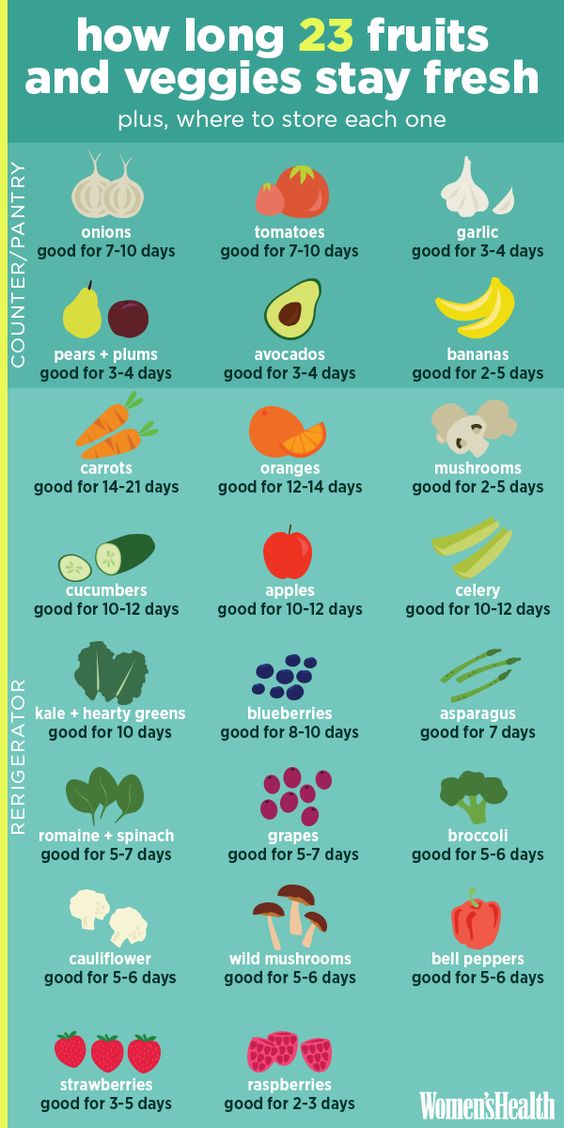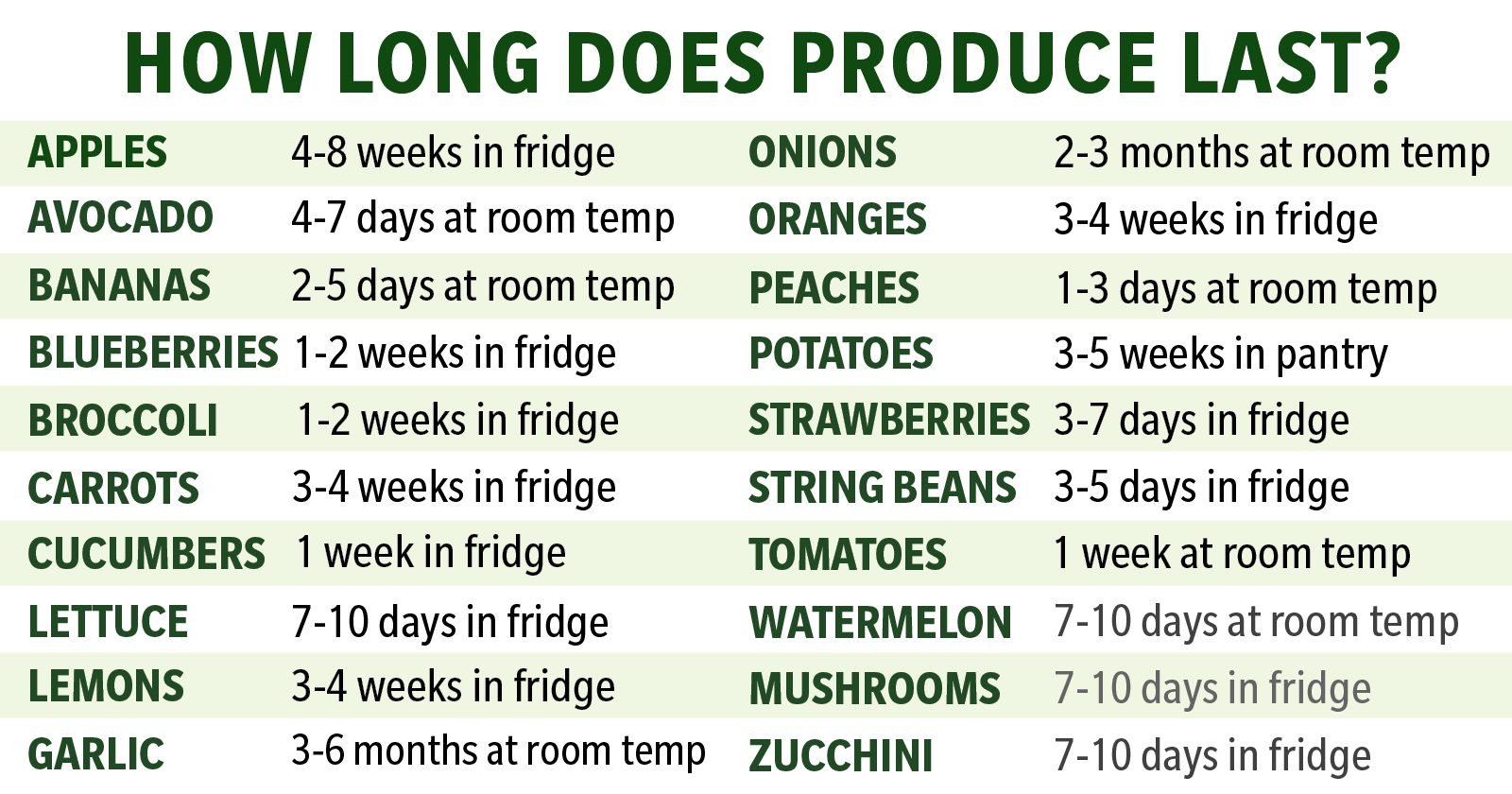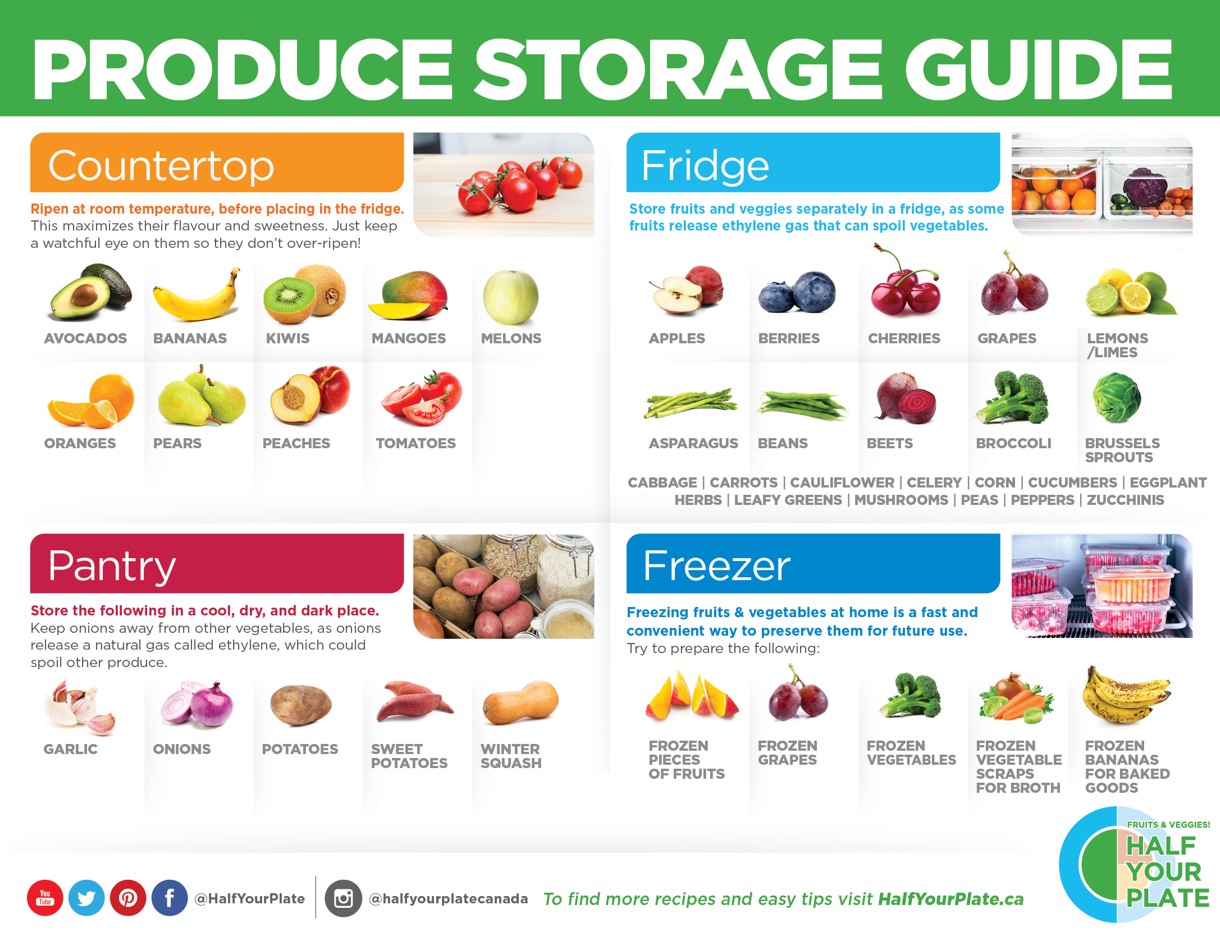Maximizing the Freshness of Fruits and Vegetables in Your Refrigerator
Preserving the freshness of fruits and vegetables is essential for maintaining their nutritional value, flavor, and overall quality. Proper storage in the refrigerator can significantly extend their lifespan, ensuring that your produce remains crisp and delicious. Understanding how long various fruits and vegetables last can help you plan your meals effectively, minimize food waste, and make the most out of your grocery shopping.
Understanding Longevity in the Fridge

Different fruits and vegetables have varying shelf lives, and this is primarily due to their composition and how they respond to cold storage conditions. For instance, ethylene-producing fruits like apples and bananas can hasten the ripening of nearby produce. Therefore, it’s crucial to store them appropriately to avoid premature spoilage.
Fruits: Keep Them Fresh
Berries such as strawberries, blueberries, and raspberries are delicious yet delicate. When stored in the refrigerator, they can last between 3-7 days. Keeping them in a moisture-resistant container, lined with paper towels, can help absorb excess moisture, preserving their freshness.
Apples, when stored in a crisp drawer, can stay fresh for about 4-6 weeks. They should be kept away from other produce to prevent the ethylene from affecting other fruits and vegetables. Citrus fruits, including oranges and lemons, thrive in the fridge and can remain fresh from 3-4 weeks. Ensuring they’re stored in a breathable bag helps maintain their moisture balance.
Tropical fruits like pineapples and mangoes are best kept in the refrigerator once they are ripe. They can last around 5-7 days when stored properly in a crisper drawer, away from ethylene producers.
Vegetables: Extending Shelf Life
Leafy greens, including spinach and lettuce, should be washed, dried thoroughly, and stored in a plastic bag or container with a few paper towels to soak up excess water. Done correctly, they can last between 5-7 days before wilting.
Cruciferous vegetables such as broccoli and cauliflower have a refrigerator shelf life of 1-2 weeks. It’s best to keep them wrapped in a damp paper towel, inside a plastic bag, to retain their moisture and crispness.

Carrots and celery stored in the crisper drawer can remain fresh for 3-4 weeks. To ensure optimal freshness, store them in a container of water or wrapped in a damp cloth. This method prevents drying out, a common cause of early spoilage.
Maintaining Optimal Conditions
The condition of your refrigerator plays a significant role in how long your produce remains fresh. It’s important to monitor the temperature, which should ideally be around 37-40°F (3-4°C). Regularly clean your fridge to prevent the growth of bacteria or mold, which can accelerate spoilage.
Separating ethylene-producing items from sensitive fruits and vegetables can prevent premature overripening. Using specific storage compartments in the fridge, like the crisper drawer for vegetables, can help maintain necessary humidity levels favorable for different produce types.
Smart Storage Practices
Incorporating smart storage strategies can greatly enhance the lifespan of your produce. Utilizing airtight containers or produce bags designed to minimize humidity and reduce exposure to air can be particularly effective.
Consistently rotating your stock ensures that older items are used before they spoil, reducing waste and ensuring you always have fresh produce on hand. Finally, being mindful of your shopping frequency and purchasing quantities suited to your consumption habits can further help in maintaining freshness.
Maximizing the lifespan of your fruits and vegetables not only helps retain their nutritional content but also promotes sustainable consumption and reduces food waste. By implementing these tips, you’re on your way to enjoying fresher produce and potentially even saving money in the long run.














